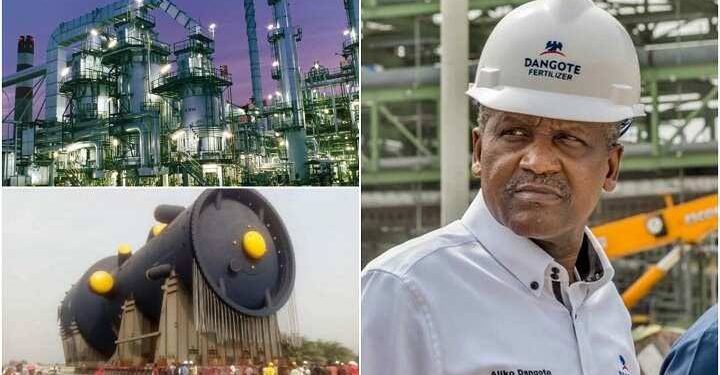Devakumar Edwin, Vice President of Oil and Gas at Dangote Industries Limited, has accused International Oil Companies (IOCs) in Nigeria of deliberately frustrating the operations of the new Dangote Oil Refinery and Petrochemicals. According to Edwin, these companies are inflating local crude prices beyond market rates, compelling the refinery to import crude from distant countries like the United States, which significantly increases costs.
Edwin made these allegations during a media briefing at a one-day training program organized by the Dangote Group on Friday. He also criticized the Nigerian Midstream and Downstream Petroleum Regulatory Authority (NMDPRA) for issuing licenses to import substandard fuel into the country.
Despite the government issuing 25 refinery construction licenses, Edwin pointed out that the Dangote Group is the only entity to have fulfilled its promise. He called for greater government support, noting that the refinery has exported over 3.5 billion liters of diesel and aviation fuel to Europe in recent months, which represents about 90% of its production.
“The Federal Government issued 25 licenses to build refineries, and we are the only ones who delivered. We deserve every support from the government,” Edwin stated. He added that the Nigerian Upstream Petroleum Regulatory Commission is making efforts to allocate crude to the 650,000-barrel-per-day refinery, but IOCs are obstructing these efforts by demanding excessive premiums or claiming crude is unavailable.
Edwin accused the IOCs of wanting to keep Nigeria dependent on imported refined products by exporting raw materials to their home countries, thus creating jobs and wealth abroad while impoverishing Nigeria.
He also criticized the NMDPRA for allowing the importation of dirty diesel with high sulfur content, which poses serious health risks to Nigerians. Edwin highlighted that while Dangote’s refinery complies with international standards and ECOWAS regulations, competitors are importing low-quality fuel from Russia, exacerbating environmental and health issues.
Edwin urged the Federal Government and the National Assembly to enforce the Petroleum Industry Act (PIA) promptly to protect Nigeria’s interests. He pointed out that countries like Ghana have already banned the importation of highly contaminated diesel and PMS, while Nigeria continues to issue import licenses for these products despite having adequate refining capacity locally.
Aliko Dangote, President of the Dangote Group, has also accused powerful individuals and cartels of attempting to sabotage the $19 billion refinery project. He recounted being advised by former Saudi Energy Minister Khalid Al-Falih against building the refinery but decided to proceed despite the challenges.
Dangote revealed that both local and international interests have tried to derail the project, especially during the COVID-19 pandemic when some international banks sought to force the project into default. However, support from institutions like Afreximbank helped prevent this outcome.
Despite Nigeria’s significant crude oil reserves, the country remains heavily reliant on imported refined fuel. Dangote has assured that this dependence will end once his refinery begins selling PMS in the third week of July.
Efforts to obtain responses from the IOCs and the NMDPRA were unsuccessful at the time of this report. The Director-General of the Lagos Chamber of Commerce and Industry, Chinyere Almona, and NMDPRA spokesperson George Ene-Ita had yet to respond to inquiries.



























































